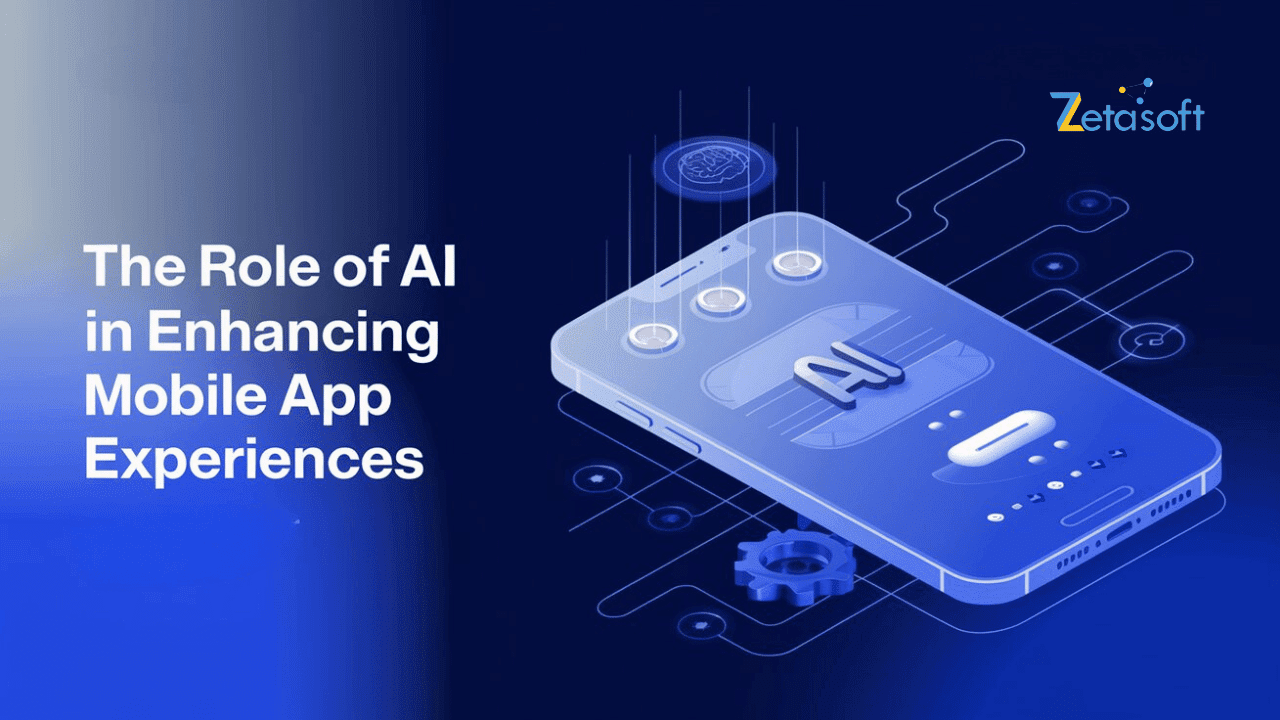Businesses have developed a preference for creating hybrid mobile applications as they can be deployed on different platforms as well as take less time and money to develop. However, the hybrid application has some issues such as performance rate as well as the user experience it provides compared to the native applications. When considering the current state of hybrid app development, AI reduces the gaps between apps and optimizes them for users. This article focuses on AI in Enhancing Hybrid Mobile App and what benefits it can provide following a shift towards a more distinctive bifurcation between the two software models: hybrid and native solutions.
Personalizing User Experiences with AI
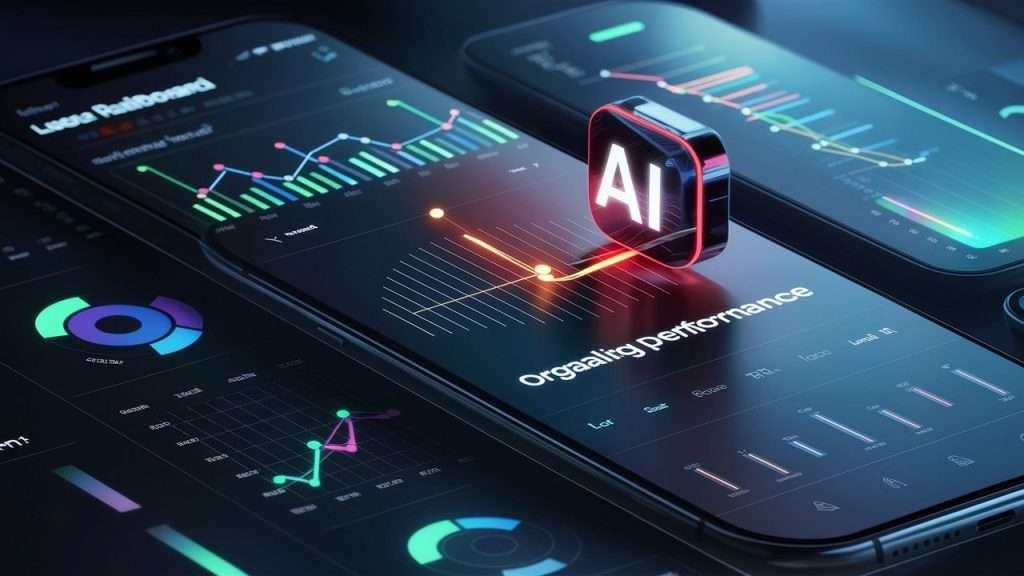
In The AI in Enhancing Hybrid Mobile App, this form of customization is now a feature in most apps because people using smartphones like their content, recommendations, and interactions to be personalized to their taste. AI in the context of the hybrid apps can also analyze data on users and provide targeted information to increase engagement for the customers.
Analyzing User Behavior for Customized Recommendations
AI is an amazingly powerful tool that can decode the user’s activities like the number of visits, an amount of clicks, and previous purchases made by the customer. Hybrid apps could incorporate machine learning algorithms for instance the hybrid app could analyze the users and recommend items or offers most likely to appeal to him/her.
For instance, an e-commerce hybrid app might recommend products, based on a user’s past behaviour or activities such as browsing activities in a store. In 2025, the necessity of the hybrid app to have an AI-recommendation engine that forms the suitable user journey will be crucial.
Adaptive UI for a Seamless Experience
AI also has the capability of modifying the interface for the user in accordance to the users behavior or choices, thereby enhancing the experience. For instance, an AI-powered hybrid app can learn which elements of the interface the users operate most often and then change the interface to make the working on these elements easier. Basically, adaptive UI enables hybrid applications to render a client-server experience without affecting players’ performance, which will help strengthen the end-users’ bond with the application.
Natural Language Processing for Personalized Communication
Hybrid apps interacting with the user is being transformed by the advent of Natural Language Processing (NLP). This makes it possible for applications to capture, interpret, and respond intuitively to the end user in real time. Some of the legendary characteristics of Hybrid apps include natural language processing where by NLP can be used for sending related messages, giving quick responses and even giving relevant information depending on the user query. In the future, applications that merge into the NLP intuitiveness make user interactions feel more personalized and valued.
Enhancing App Performance with AI-Powered Optimization
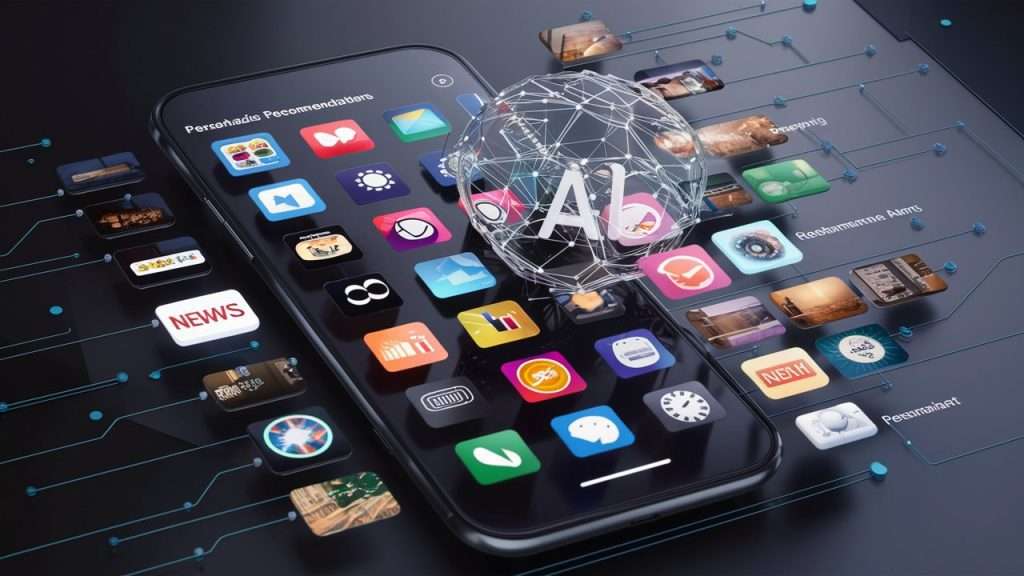
In the AI in Enhancing Hybrid Mobile App, performance has been an issue from the start because it has to effectively work on both platforms. It is evident that AI serves in enhancing more the performance of hybrid app to have faster speed, less load time, and also in the improvement of data storage, thus making users have an efficient experience.
Predictive Loading for Faster Load Times
Predictive loading involves employing of AI algorithms to determine the data or the facet that the user is likely to engage with next with the aim of loading the data earlier. Through this form of pre-loading, hybrid can improve on response time, to a level of that of a native app, by loading content before they are requested.
For instance, if a media-streaming application is being watched on a tv series, the application can give a hint of what is to happen next by loading the next show before the viewer checks it on the screen. The usage of predictive loading in hybrid apps is expected to become mainstream in the year 2025 as the apps achieve matching levels of performance to those of native apps.
Image and Data Compression
Media aspect Significant data such as images, videos, and large quantity of data poses a challenge or reduces the performance of hybrid apps particularly when the device is of low power. There are other techniques involved here, which can be put to use – wherein latest AI technology can help in compressing the multimedia objects being used in the application without much worrying about the quality and hence, enabling better loading time and usage of data. In future, three-tier hybrid apps will leverage AI to improve real-time image, video and other contents to assure a good experience without overworking user hardware.
AI-Powered Battery and Resource Optimization
However, the use of hybrid application has its share of problem in that it shares the resources of the place where it is deployed because it runs on different platforms. Hence, AI-Enabled technologies can assist the intended battery resources in providing efficiency in power usage, and the allocation of abundant resources in the usage of numerous applications. For instance, AI can identify if an app is using excess energy and put measures into place that will reduce use of the power. In 2025, app owners will be able to use the optimization of the use of resources to enhance battery longevity and performance of hybrid applications on low-processing devices.
Enabling Smarter Interactions with AI-Driven Chatbots and Voice Assistants
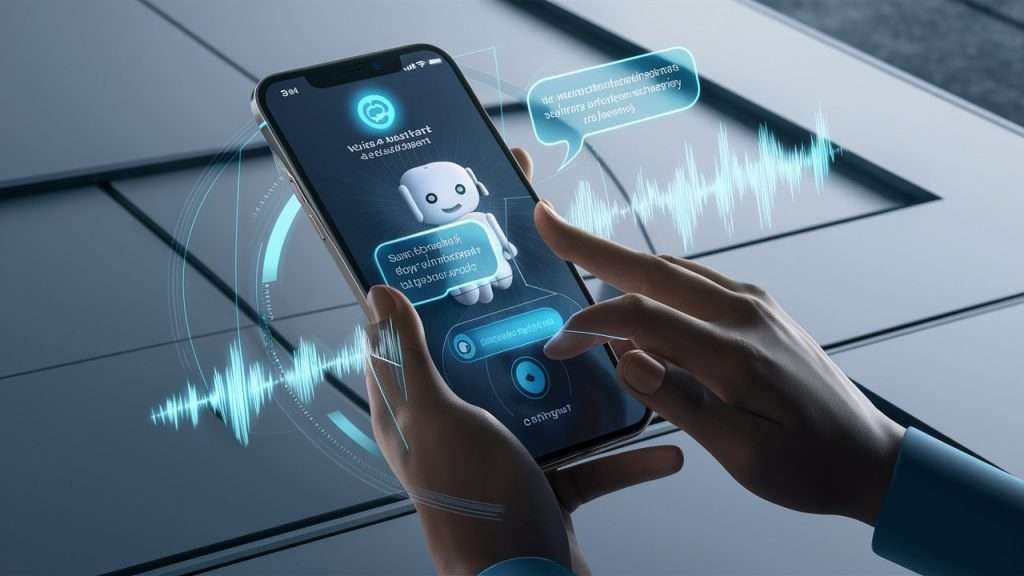
AI in Enhancing Hybrid Mobile App Includes The Chatbots and voice assistants Because They Have now entered the mobile app arena providing versatile and conversational ways for users to engage with the app. AI improves these interactions in hybrid apps by boosting their ability to help users via clear response to their commands.
AI Chatbots for Instant Customer Support
Hybrid applications use AI chatbots for real-time customer support, for responding to queries regarding the product or guiding the customer through features, or help with resolving usual concerns. AI enabled chatbots are a step ahead of simple static chatbot programs as the AI can learn from the query and provide an accurate response.
For example, a travel application may employ a conversational agent to complete travel bookings, respond to queries on open travel, and even recommend platforms to visit. By 2025, AI will be primary to hybrid apps, and users will be able to use chatbots to get incessant support without human input.
Integrating Voice Assistants for Hands-Free Interaction
Smart speakers give the users a way to control app and avoid having to click or to type. The use of voice recognition is very useful in hybrid applications because it provides an avenue, apart from gestural, touch-based and visual, for users to conduct searches, make reservations or generate information without having to constantly use their hands.
For example, an AI, powered voice of the hybrid recipe app could then help the user by providing instruction on how to cook step by step. The continuation of progressions in voice recognition will make the voice assistants a strong point in hybrid apps for facilitating a convenient and customer-friendly experience in years 2025.
Sentiment Analysis for Improved User Communication
Specifically, sentiment analysis, which is a subfield of NLP, enables hybrid apps, to determine the positive or negative intent of a user’s message. The identification of the emotional state of the user facilitates a better way through which the apps can respond to the user’s account in order to achieve the best possible interaction.
For instance, a chatbot used in customer support can identify that the user is angry, and respond with more comforting words. In the future, the use of sentiment analysis in the application will be useful in enhancing the more user friendly and responsive hybrid apps user experience, hence enhancing the satisfaction and loyalty towards hybrids.
Data Security and Privacy with AI

It is Crucial Imp in the AI in Enhancing Hybrid Mobile App That the Security and privacy are very important in mobile applications development since people share several details with the applications. Hybrid apps are protected by AI that detects risks, shields information, and complies with the regulation.
Detecting and Preventing Security Threats
The use of AI makes it easier to ever monitor the activity of the app and uses algorithms to detect some of the security risks associated with the use of the app. Every behavior can be learned and hence with the use of AI, behaviors that look questionable can easily be highlighted, for example unauthorized login or transfer of data. Hybrid applications in 2025 will be equipped with AI continual monitoring of the general environment with an aim of identifying emerging security threats that may endanger users data.
Data Encryption and Anomaly Detection
AI can complement data encryption by responding to breaches by means of functioning of machine learning algorithms. Furthermore, anomaly-based detection techniques can also watch data access and control and alert the system administrators in case of any anomalous behavior mean that sensitive data will remain protected. Hybrid apps applied in financial and healthcare sectors can take advantage of anomalous detection by applying AI, which assures the users the safety of their information hence gaining their trust.
Ensuring Compliance with Privacy Regulations
From GDPR to CCPA, it is mandatory for apps to safeguard and maintain high standards of the user’s personal information. AI can assist hybrid apps to be compliant since they track data usage to make sure that user consent is properly captured and that practices on handling of data adhere to the set legal requirements. As technologies advance, robotic compliance will become an essential part of hybrid applications to maintain privacy compliance laws and to reduce involving legal issues.
Boosting Engagement with Predictive and Contextual AI
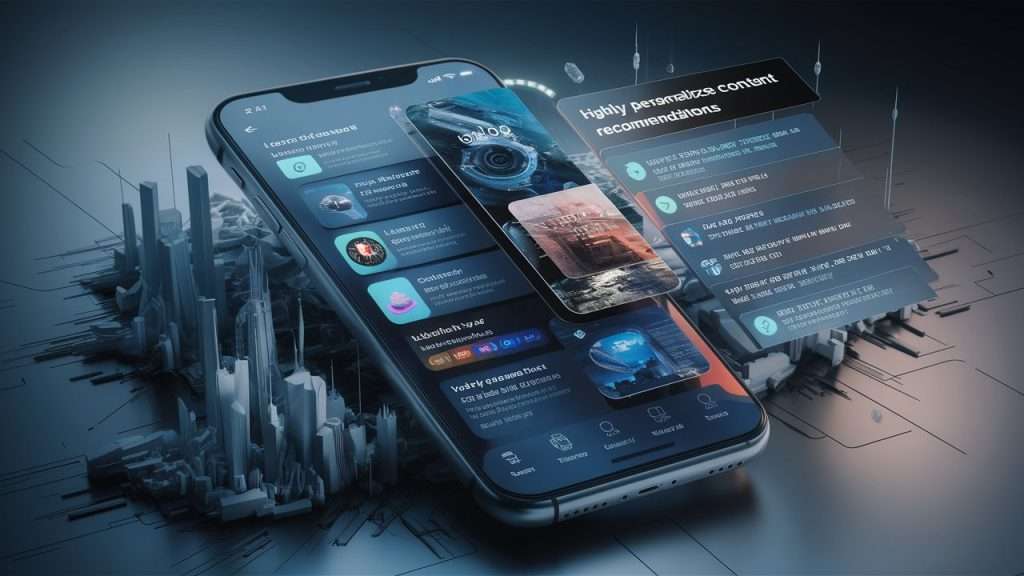
In AI in Enhancing Hybrid Mobile App, For the user engagement to be increased noticeably, the properties of the apps which are to be hybrid have to be made more contextual and AI-informed. The use of AI in analyzing users’ data and contextual conditions optimizes the delivery of content, its features, as well as recommendations performed by the hybrid apps.
Predictive Analytics for User Retention
Based on historical data, predictive analytics help hybrid apps know when a user is likely to get bored or perhaps disengage. The above patterns are made known to AI and in turn, the apps can be proactive through representational acts, such as sending notifications or offers. Prediction in 2025: Predictive analytics will be an incredible weapon in hybrid apps helping to increase the average atensity of users and get better co-efficients of non-attrition.
Context-Aware Content Recommendations
Although, some aspects such contextual nature of AI can allow for recommendations to adjust to location, time and activity of the user. For instance, a fitness application may advise a user of what to do at any time of the day or maybe suggest exercises depending with the geographical location of the user.
In this way, the hybrid apps provide the content that is in some way related to the context of the user, which should enhance the interest towards an application, as well as the overall quality of the interaction process, making interactions look more individual and satisfying.
Dynamic Push Notifications
With the help of AI, hybrid apps provide the users with timely and more effective push notifications that represent unique content. Using AI to analyze the user’s behavior and additional preferences, the basic advantages of push notifications and basic principles by which they can be used can help to define when and what message should be sent by a push notification to make people open it not thinking that it is too invasive.
By the year 2025 therefore, dynamic push notifications will have a very crucial role in making sure that the users are engaging without being bored or overwhelmed in equal measure giving the app lovers all the fun they would need.
Improving Accessibility with AI-Driven Features
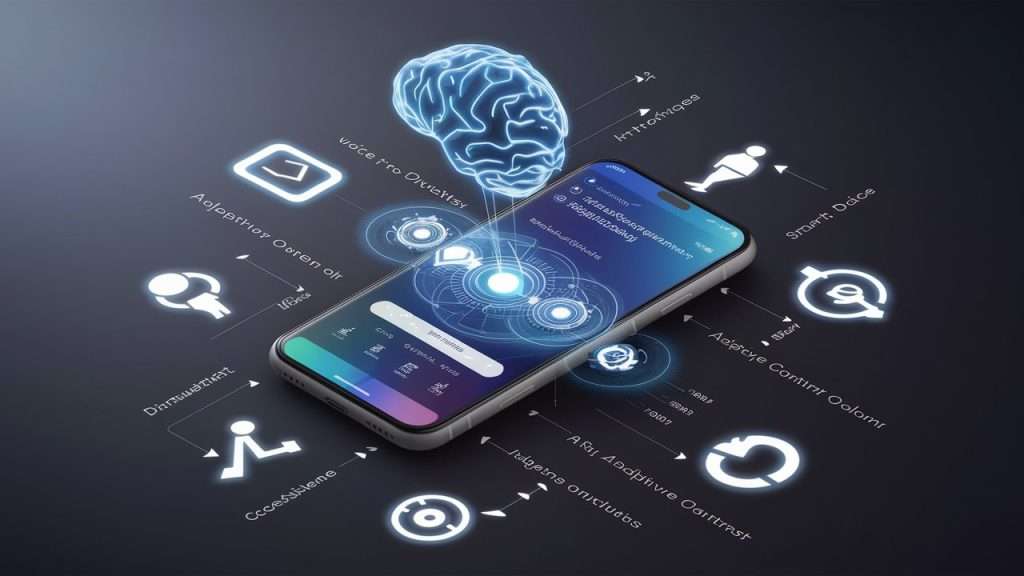
In the AI in Enhancing Hybrid Mobile App, Accessibility is very important in today’s app design as it let every individual including the disabled individuals get to use and have fun with certain applications. Hybrid apps today are becoming more inclusive because AI is providing tools and features which can enhance it.
Voice-to-Text and Text-to-Voice Features
By integration of AI in the app, voice recognition can be implemented for input and output in hybrid apps for example voice to text and text to voice for a non-contact experience or feedback. Cohere benefits from this technology especially for the users with visual or motor disabilities and so making the interfaces of the app. As for the future innovations, the voice features controlled by AI will be integrated into hybrid apps and therefore provide equal opportunities for everybody.
Image Recognition for Visually Impaired Users
A particular AI prescribes a text description of objects and attributed text in the images for users with visual impairments. This technology can be employed by hybrid apps to describe images, products or the content, so that the visually disabled users can use the app on their own. With increasing enhancement in the AI image recognition technology, the description and support of the hybrid apps for the VLC, in addition to other visually impaired users, will be upgraded, enhancing the overall accessibility of the Mobile apps.
Adaptive Text and Color Schemes
It also can change the font size, color and contrast according to the user’s choices or physical conditions of the surrounding area. Apart the size of fonts, the text and the color contrast helps partially blind people who struggle with eye sight to view content without much strain. Based on the adaptive design, accessibility to a hybrid app will be convenient in 2025 for a broad and cross-section population group.
Summary
AI is today at the center of revolutionizing hybrid mobile app by adding value to it through such functions as customization, optimization, interfaces, security, use engagement, and usability. Since AI technology advancement is bound to progress, that will enable hybrid apps to develop user interface virtually similar to the native apps thus increasing their flexibility while enhancing their performance.
The above findings depict that developers who wants develop apps that are sustainable in the future then integration of Artificial Intelligent features will be compulsory to develop valuable, effective and easy to use hybrid mobile apps in 2025.

